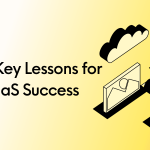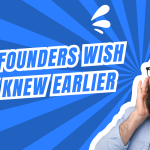In the fast-paced, innovation-driven world of SaaS, a peculiar pattern often emerges: founders tirelessly tweak, build, and polish their products, all while hesitating to jump into marketing. This isn’t just a minor oversight—it’s a trend that keeps resurfacing. As seasoned tech observers, we’ve seen the pitfalls and missed opportunities that come from delaying outreach and user engagement.
Many founders hold off on marketing, thinking that once they’ve created the “perfect” product, customers will naturally flock to them. This assumption, however, rarely holds true in today’s competitive tech space. In fact, delaying marketing can often be the critical misstep that stunts growth and risks the very viability of these ambitious projects. Below, we dive into why this happens, what’s really behind the hesitation, and why this mindset is a major obstacle for SaaS startups hoping to thrive.
The Comfort Zone of Product Development
For many SaaS founders, the development phase is like home territory. Building features, debugging, and perfecting product functionality is familiar ground, and it feels like measurable progress. Marketing, on the other hand, opens up an array of uncertainties that can be challenging for those who excel in the logic and control of development. This reluctance to venture into marketing is about more than personal preference; it’s deeply rooted in the perception that building is safer, while marketing feels unpredictable.
The Weight of Perfectionism and Fear of Failure
Many founders see marketing as a spotlight on their work, and they’re reluctant to put something out until it’s absolutely polished. There’s a common fear that by showcasing a product that isn’t perfect, they risk damaging its reputation or facing early criticism. This perfectionist mindset can stall even the most promising projects indefinitely, as founders keep “just one more feature” or “a few more tweaks” away from release. But in a saturated market, waiting too long for perfection can mean losing out to competitors who understand that products grow stronger through user feedback.
The False Promise of Organic Growth
The idea that “if you build it, they will come” is especially alluring in SaaS, where some believe a high-quality product will naturally attract users. But with countless tools launching daily, even the most groundbreaking product can go unnoticed without active outreach. Founders who rely solely on organic growth often find themselves scrambling to generate interest once their runway is running out, realizing too late that they needed a well-established presence from the start.
The Daunting Challenge of Marketing Mastery
Unlike development, where founders often have clear skills and a roadmap, marketing can feel ambiguous and fraught with rejection. Finding the right audience, testing messages, and building a user base are complex challenges requiring a different skill set. Some founders fear they don’t have the knowledge—or the budget—to make marketing work, which leads to hesitation and often a complete lack of strategy. In many cases, founders don’t realize that marketing should be integrated into their product roadmap, not treated as a final step after everything else is “done.”
Embracing Feedback and Iterative Growth
Experienced founders and industry veterans understand that no product is perfect at launch. Rather than fearing feedback, they leverage it to iterate and improve. Marketing, even in its early stages, provides critical insights that can help shape the product to better meet user needs. In fact, putting an early version of the product out to real users often brings more improvement than any amount of internal development can achieve. Unfortunately, the fear of criticism prevents many founders from taking this critical step, leaving valuable feedback on the table.
Conclusion: Why Marketing Must Start Early and Be Strategic
If there’s one takeaway from this trend, it’s that delaying marketing is a costly mistake. In today’s crowded SaaS market, building in silence is a risky gamble. Founders need to recognize that marketing isn’t just about sales; it’s about building a brand, understanding the market, and driving the iterative growth that makes products truly great.
SaaS founders should start viewing marketing as an essential part of their growth strategy, not an afterthought. Early marketing efforts allow founders to gather user insights, fine-tune messaging, and create traction, even if the product isn’t fully complete. Integrating marketing from the beginning ensures that, by the time the product is perfected, an eager audience is already waiting.
Professional Insight: For founders navigating these challenges, marketing isn’t a skill to fear but a critical business function to master. It’s not enough to have a vision—you need to communicate it effectively, gather feedback, and adjust based on real-world responses. In an industry that evolves as rapidly as SaaS, marketing can be the difference between a project that remains invisible and one that gains traction, scales, and sustains itself over the long haul.


